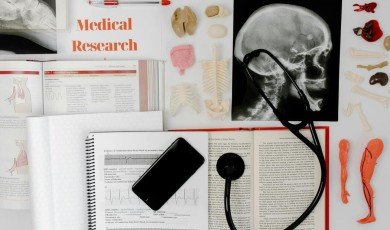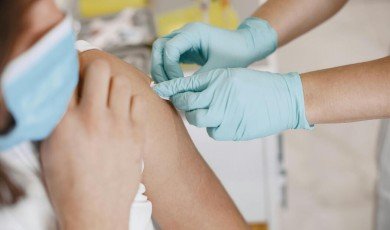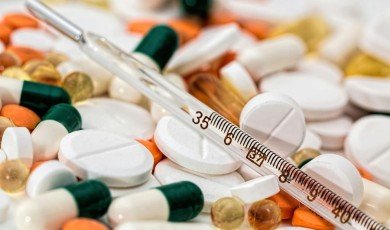
The COVID-19 pandemic changed the course of modern medicine forever. What began as a global health crisis became one of the greatest accelerators of medical innovation, international cooperation, and technological advancement in human history. In just a few years, the world witnessed decades’ worth of progress condensed into months. From mRNA vaccines to telemedicine, the pandemic pushed science, regulation, and communication to evolve faster than ever before.
As we move into a post-COVID era, medicine faces both enormous opportunities and complex challenges. The systems built to contain a crisis are now being refined to create a more resilient, inclusive, and connected future of healthcare.
Revolution in Medical Technology
Before 2020, digital transformation in healthcare was progressing slowly. The pandemic changed that overnight. Hospitals, clinics, and research institutions were forced to digitize operations, share data across borders, and adopt virtual care tools to reach patients in lockdown.
Telemedicine, once a niche concept, became the new normal. Remote monitoring devices, mobile health applications, and AI-driven diagnostics are now integral to healthcare delivery. These technologies have made medicine more accessible, particularly in regions where medical infrastructure is limited.
Artificial intelligence also transformed research. Algorithms that once analyzed consumer behavior were repurposed to identify viral mutations, predict infection patterns, and accelerate drug discovery. Machine learning helped scientists process vast amounts of genomic and epidemiological data — a process that would have been impossible for humans alone.
The Rise of Global Collaboration
Perhaps the most positive legacy of the pandemic is the spirit of collaboration it inspired. Pharmaceutical companies, governments, and research institutions came together to share data, resources, and expertise. This shift toward open science continues to reshape global medicine today.
For instance, international databases now allow researchers to access genetic sequences of viruses within hours of discovery, enabling faster vaccine updates and targeted treatments. Partnerships between private companies and public health organizations are driving the creation of platforms that track global health threats in real time.
This interconnectedness, however, demands clear and accurate communication — both scientific and legal. As cross-border research and regulatory work expand, the demand for legal document certified translation services has grown significantly. Accurate translation ensures that international agreements, trial documentation, and public health reports are understood and recognized across jurisdictions, avoiding costly delays and misunderstandings.
Vaccine Innovation and Preparedness
The development of mRNA vaccines against COVID-19 marked a turning point in biotechnology. What was once experimental technology became a global lifesaving tool. The speed and success of these vaccines have inspired a wave of research into new applications — from cancer immunotherapy to flu prevention and rare diseases.
Pharmaceutical companies are now investing heavily in flexible vaccine platforms that can be adapted quickly to fight future outbreaks. This shift toward adaptability and rapid response will define the next generation of medical preparedness.
Beyond science, the experience also forced governments to rethink their health policies, ensuring faster approval processes and better coordination between national and international regulatory bodies.
Public Health and Mental Health Awareness
The pandemic exposed how fragile global health systems can be. It also revealed a growing need to address not only physical health but also mental well-being. The stress, isolation, and uncertainty caused by COVID-19 triggered a mental health crisis that continues today.
In the post-pandemic world, mental health is no longer a secondary topic — it’s a central component of public health strategy. Governments and institutions are investing in awareness campaigns, psychological support programs, and digital therapy platforms. The intersection between technology and empathy will shape how medicine treats the mind as well as the body in the years ahead.
Ethics, Equity, and Global Access
COVID-19 also exposed the stark inequalities in healthcare access between countries and populations. While wealthy nations vaccinated large percentages of their citizens early, many developing countries struggled to obtain doses for months. This imbalance sparked a movement toward global health equity.
Organizations like the World Health Organization and Gavi are now promoting fairer distribution systems and transparent supply chains. Medical innovation cannot truly progress unless it reaches everyone. The future of medicine depends on ensuring that breakthroughs — vaccines, therapies, and diagnostics — are accessible and affordable for all.
Transparency and regulation are key. As medical trials expand across multiple regions, so do the requirements for multilingual compliance and documentation. Once again, professional legal document certified translation services play a crucial role in maintaining trust and accuracy across legal frameworks, languages, and cultural contexts.
The Data-Driven Healthcare Ecosystem
Data has become the backbone of modern medicine. Electronic health records, wearable sensors, and predictive analytics allow doctors to make faster and more informed decisions. Real-time data sharing helps identify outbreaks, monitor chronic diseases, and improve patient outcomes.
Yet, with this power comes responsibility. Privacy, cybersecurity, and ethical data usage are now at the center of global debate. Health organizations must protect sensitive information while using it to enhance care and innovation. The challenge for the next decade will be balancing transparency with confidentiality, ensuring that digital progress does not come at the cost of personal privacy.
Education, Communication, and Trust
Perhaps the most important lesson from COVID-19 is the value of communication. Public understanding of science determines how effectively societies respond to crises. Miscommunication — or deliberate misinformation — can be as dangerous as the virus itself. Doctors, scientists, and policymakers must continue to communicate with clarity, empathy, and transparency. Medical education, both for professionals and the public, will rely increasingly on collaboration across borders, disciplines, and languages. Medicine in the post-COVID world is no longer just about discovery — it’s about understanding.
The future of medicine is being built on the lessons of the pandemic. It is faster, more connected, and more humane. Technology will continue to enhance diagnostics and treatment, but the heart of healthcare remains compassion, collaboration, and communication.From vaccine innovation to data-driven care, from global research alliances to digital health platforms, medicine is entering a new era — one defined by resilience and inclusivity.
And as the world grows ever more interconnected, the accuracy of language will continue to matter. Whether for regulatory approvals, international trials, or cross-border agreements, legal document certified translation services will remain vital to ensuring that progress in medicine speaks clearly to all humanity.







